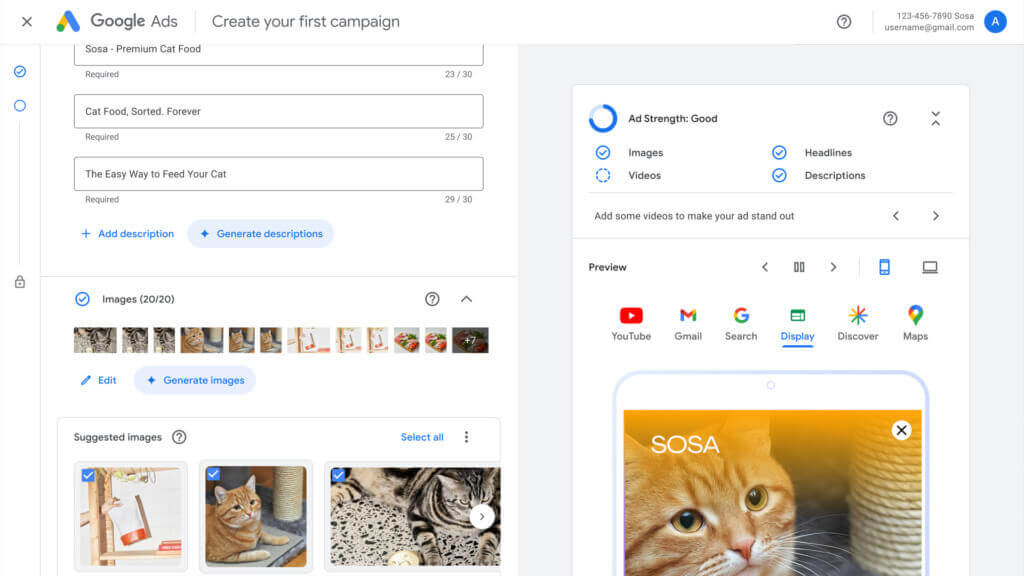Google Ads introduces AI features to enhance Performance Max
Google introduces AI-generated text and image creation to Performance Max Ads, offering enhanced asset generation and creative control for U.S. advertisers.

Google has recently introduced cutting-edge artificial intelligence (AI) features into its Performance Max advertising suite. This innovation, currently in beta for all American advertisers, is set to revolutionise how adverts are created and expanded, providing tools for generating new text and image assets with the help of AI.
Table Of Content
Performance Max, which debuted in 2021, harnesses Google’s AI to cover various platforms, including search, YouTube, and display networks. This system utilises performance data to refine advertising strategies and now incorporates generative AI to aid in creating assets.
How will generative AI assist marketers?
Introducing these AI tools is poised to simplify the process of producing high-quality, customised assets. According to a recent blog post by Pallavi Naresh, Group Product Manager, these features address one of the most challenging aspects of campaign management—asset creation and scaling. The AI swiftly generates new text and images, requiring just a few clicks from the user.
Once the user gives the AI a prompt, it crafts unique images and text specific to each business’s needs. Notably, Google ensures advertisers can review and edit any generated content before it goes live.
Enhanced creative control with new AI tools

Beyond generating assets, Google’s platform also offers AI-powered image editing tools to refine new and existing creatives. For instance, an agency could test various winter backgrounds for product images on behalf of a client. This flexibility is crucial for advertisers who wish to experiment with different creative variations or build their initial concepts from the ground up. Google notes that all AI-generated images will be clearly marked with a watermark and labelled as created by AI.
Commitment to responsible AI use
Google has emphasised its commitment to responsible AI use, ensuring the new features adhere to strict internal AI principles. This approach aims to prevent the creation of policy-violating or insensitive content. Google will maintain human oversight and take necessary actions to ensure all content aligns with their policies.
This development represents Google’s ongoing effort to weave generative AI into its marketing tools, following presentations at its Marketing Live conference earlier in the year. These features are designed to streamline the creative process for Performance Max campaigns, regardless of their size.
While the generative AI beta is currently only available in the U.S., a broader rollout is anticipated by the end of 2023.














